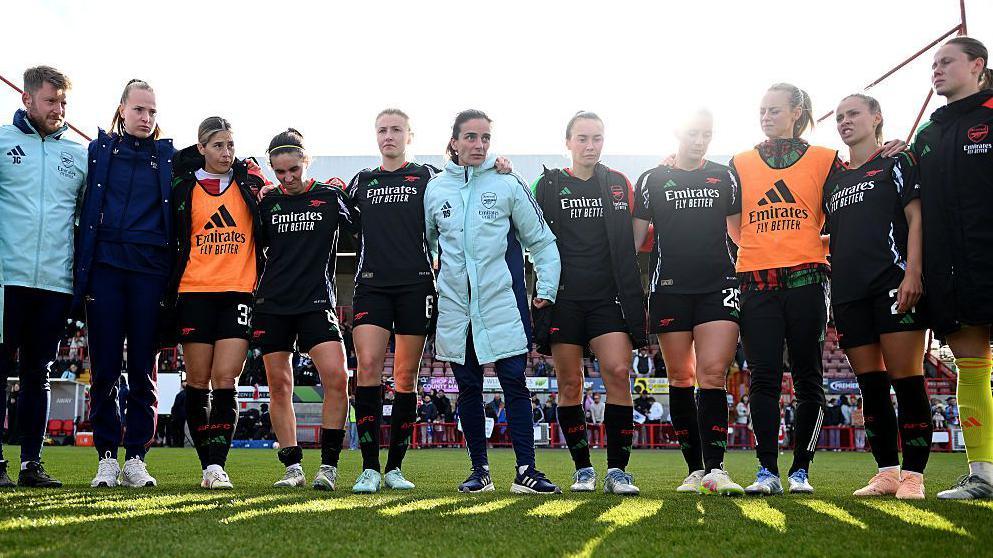Arsenal Women’s football team is currently facing a challenging period, having recently experienced back-to-back defeats in the Women’s Super League (WSL), following a historical victory in the Women’s Champions League. Just seven days ago, the side, led by manager Renee Slegers, celebrated a remarkable 4-1 success against Lyon, which secured them a place in the Women’s Champions League final for the first time in 18 years. This high point has, however, been overshadowed by their performance in the league, where they conceded an alarming nine goals across two matches, losing 5-2 to Aston Villa and 4-2 to Brighton.
The inconsistency displayed by Arsenal has raised concerns and questions about the team’s focus. Slegers made significant changes to her lineup following the Lyon victory, a decision that was perhaps crucial in the unexpected loss to Villa. With seven new faces, the team’s performance was disjointed, creating a shaky atmosphere on the pitch. Despite featuring a lineup that previously overcame a challenging opponent, the team’s defensive vulnerabilities were laid bare, epitomized by the hesitancy and mistakes that led to Brighton’s goals, particularly two that stemmed directly from defensive errors.
Caitlin Foord, a key player on the squad, voiced the frustrations felt within the team. After the defeat against Brighton, she stated, “It’s not good enough all round and we need to take a look at ourselves individually and as a team. We can’t let that happen again this weekend.” Her sentiments echoed the deep disappointment felt after a strong performance against Lyon. It is clear that a focus on individual and collective accountability is paramount to preventing a repeat of such failures.
The disparity between their Champions League form and their recent league performances has led some to speculate whether the team has become distracted by their continental success. Slegers acknowledged the intense pressure players feel to balance their achievements with their responsibilities in league play. She emphasized the importance of staying present and focused amidst the challenges, stating, “We have to be in the moment. That is the million dollar question.” In response to questions about possible distractions, Foord firmly maintained that the squad remains aware of their responsibilities, stressing that despite their Champions League ambitions, they have ongoing obligations in the league that they cannot overlook.
Following the consecutive league losses, Arsenal now face a critical fixture against Manchester United, who are situated just behind them in the league standings. This confrontation is pivotal, as the prospect of a third consecutive defeat could see Arsenal drop to third place in the WSL table. This shift would complicate their entry into next season’s Champions League, which could place greater pressure on the team’s aspirations.
Foord’s optimistic approach points toward the need for a recovery in form, as she remarked, “We need a good performance, we need to play well, we need to get that confidence back.” This sentiment indicates a collective desire to reclaim the form that brought them success and confidence in the Champions League, emphasizing that the squad must rise to the occasion in both mindset and execution to secure their place in the upper echelons of English women’s football.
As the team prepares, their focus must shift toward analysis and improvement, learning from recent setbacks to emerge as a resilient unit. The upcoming match against Manchester United represents not only a chance to reclaim crucial points in the league but also an opportunity to reaffirm their competitive edge ahead of their Champions League final against Barcelona. Overall, Arsenal has much to reflect on and adjust, as they look to stabilize their performance and ensure a brighter path forward in both domestic and international competitions.



